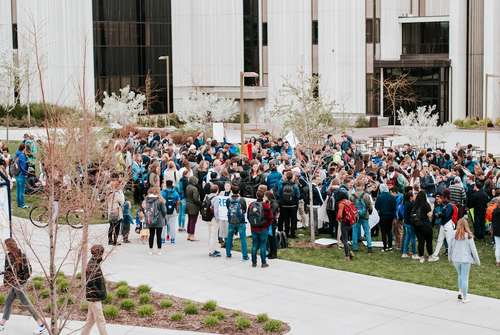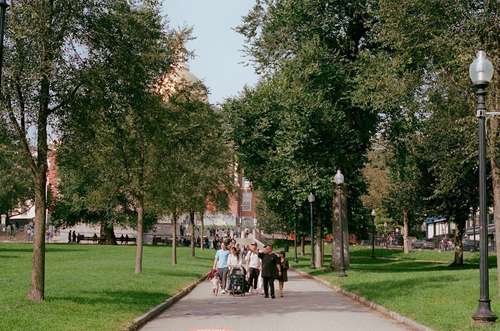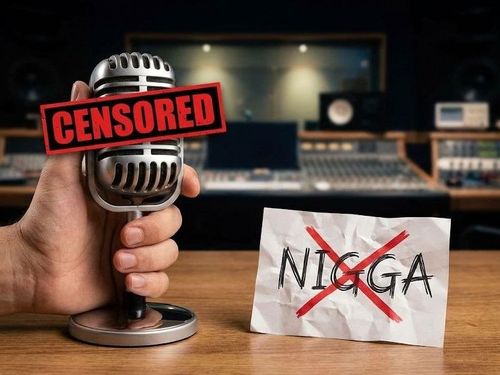The recent killing of conservative influencer Charlie Kirk has sparked a flurry of emotions and vigorous discussions among students at Utah State University and beyond. Many students are grappling with a mixture of shock, anger, and profound sadness, while simultaneously questioning the current state of political discourse in our country. The incident has forced people to reckon with issues of free speech and the deep divisions in political culture.
As news of the tragedy spread, many campus discussions turned into impassioned debates. In small gatherings in dorm lounges and larger assemblies in lecture halls alike, students are calling for a return to dialogue and respectful debate. It’s as if a spark has ignited a conversation about how to heal political polarization and foster understanding among differing viewpoints.
Campus Reactions and Student Perspectives
Students across campus have been quick to react. With short, noisy hallway conversations and longer, reflective sessions in study groups, the response has been varied and intense. Many feel the killing of Charlie Kirk has put a spotlight on the dangerous level of political polarization that seems to have infected the heart of modern America.
This reaction isn’t just about the violent act itself but also about what it signifies about our society. Some students expressed that the incident is a wake-up call, highlighting a need to rebuild the bridges between opposing political camps. One student mentioned, “This moment makes me wonder if it’s time we stop demonizing each other and instead work together to find common ground.”
The widespread dialogue reflects a growing student movement determined to address the precarious state of free speech and public discussion. The diverse background of these student activists has given rise to several campus events that encourage measured and respectful exchange of ideas. With these gatherings, it is hoped that the turmoil and fear that might have accompanied such divisive incidents will eventually be replaced by meaningful civic engagement.
Political Culture Shift and the Demand for Change
The killing of Charlie Kirk, regardless of one’s political leanings, acts as a stark reminder of how far the nation has strayed from civil political debate. Amid the outrage are calls for a complete overhaul of our political discourse. Students are increasingly vocal about the need for dialogue initiatives that bring together perspectives from across the political spectrum.
After the shocking news broke, campus events focused on encouraging educational dialogue and free speech emerged rapidly. Casual meet-ups and formal panel discussions provided space for students to mull over hard-hitting questions. Are we, as a society, so entrenched in our ideologies that we forget the value of listening when it counts the most? The incident has pushed many to reflect on whether political debate should be a means to further divide or a catalyst to forge unity.
Political debate has become a battleground where words and actions are scrutinized relentlessly. In this volatile atmosphere, the demand for calm and structured dialogue not only emphasizes the importance of free speech but also underlines a desperate need to heal societal wounds. This is why student activism now includes dialogue initiatives that prioritize understanding over division.
Governor Spencer Cox's Plea for Unity
In response to this tragedy, Governor Spencer Cox has been vocal about the need for students to engage in conversations that promote unity across the spectrum of political beliefs. His appeal to student voices about dialoguing rather than shouting has resonated on campus.
Governor Cox’s remarks have struck a chord with many because his words appear to stem from genuine concern about the future of political discourse. He stressed the importance of bridging divides and encouraging civic engagement in a time when partisan bickering threatens to erode the very foundations of free speech and shared ideas. Many students appreciate that his statements seem to acknowledge their frustrations while urging them to channel their emotions in more constructive ways.
It is evident that the governor’s call for unity is not just lip service; it has ignited numerous campus events dedicated to furthering political dialogue. These events are designed to transform passionate reactions into actions that can promote understanding across ideological lines.
Student Activism and the Movement for Free Speech
Following the killing of Charlie Kirk, student activism on campus has taken on a fresh momentum. Now is the time for student voices to shine as advocates for free speech and respectful conversation. The tragic loss has pushed many to reassess their roles as young Americans in a divided nation.
Student leaders have organized a series of discussions that blend political debate with educational discourse. They have invited speakers from different walks of life and political leanings, all in a bid to foster an environment where dialogue triumphs over discord. These lively forums underscore that while the event may have been catalyzed by tragedy, its aftershocks are being harnessed for societal change rather than further conflict.
The movement is reminiscent of a community coming together after a storm. Much like neighbors rebuilding after a natural disaster, the students are united in their desire to mend a fractured political culture and reclaim a sense of mutual respect.
Understanding Through Dialogue and Campus Discussions
It’s interesting to see how a singular event can mobilize an entire campus to reconsider how dialogue is conducted. In a series of campus discussions, students are exploring the idea that the killing of Charlie Kirk is more than just an isolated act of violence; it’s a symptom of the growing disconnect in political dialogue. Many question whether the current state of affairs necessitates a more deliberate focus on listening to diverse opinions.
These conversations are interspersed with personal anecdotes that make the events more relatable. One student recounted a heated conversation with a friend who held contrasting views, drawing parallels to how the current political climate feels like a chessboard where every move is filled with caution and mistrust. Yet, there is a hopeful sentiment that through honest discussion, the game can be reset, allowing for fresh strategies in reaching consensus.
While the tragedy of Charlie Kirk’s killing has left an indelible mark on the campus, it is inspiring to witness students turning grief into determination. The hope is that by embracing dialogue, they can repair the torn fabric of political debate and ensure that future campus discussions are rooted in mutual respect and understanding.
A Spark for Broader National Dialogue
The ripple effect of the student reactions and campus events extends beyond university walls. Many believe that these local initiatives can serve as a blueprint for the rest of the country, where political polarization is rampant and dialogue increasingly scarce. Students are not just engaging in dialogue for themselves; they are setting an example for a broader national conversation.
Looking at how these initiatives are forming, one can see the outlines of a more inclusive political culture emerging. Young Americans are stepping up to the challenge of fostering civic engagement, where every voice is respected regardless of partisan lines. With each conversation cried out from campus halls, there is a growing belief that change is possible even amidst severe political debate.
Some see this moment as the beginning of a new chapter in the dialogue surrounding free speech and conservative speakers like Charlie Kirk. The tragic killing, while deeply unsettling, has opened a dialogue on how to face the tough questions and repair a fragmented political climate.
This is not just about reacting to a single incident—it's about rethinking how we as a society interact. Conversations are now viewed as steps toward healing, proving that student involvement and educational dialogue can pave the way for transformative change.
In many ways, the campus has become a microcosm of what the nation could look like if dialogue prevailed over discord. The hope for unity, measured debate, and genuine listening remains at the core of this evolving movement.
Conclusion
In summary, the tragic killing of Charlie Kirk has deeply affected student communities, sparking a necessary conversation about the state of political discourse in America. From heated campus debates to organized dialogue initiatives, young Americans are calling on each other to reassess the meaning of free speech and civic engagement. With voices uniting for change, Arizona’s own student activists are setting the stage for a future where dialogue, rather than division, becomes the norm. It’s a call to all of us to listen, engage, and ultimately build bridges where once were chasms.




